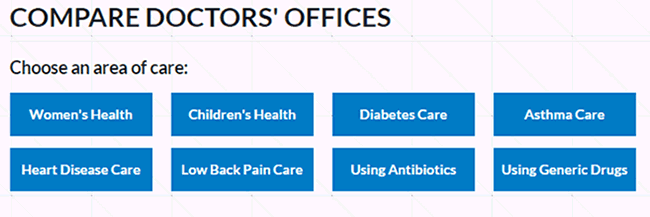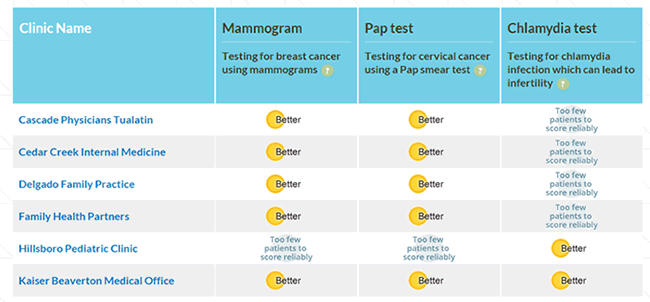Organizing Quality Measures by Disease or Condition
Research indicates that consumers are more interested in measures that are clearly related to a disease or condition that they have, or that a loved one has.[1] A large number of measures are disease-specific. If most or all of the measures you are considering are disease-specific, then you should consider this approach.
Advantages of Categorizing by Disease or Condition
Disadvantages of Categorizing by Disease or Condition
EXAMPLE: Comparing Doctors' Office by Area of Care
Sponsor: Oregon Health Care Quality Corp.
URL: http://www.q-corp.org/compare-your-care/compare-doctors


Source: Oregon Health Care Quality Corp. Compare Your Care. Available at: http://www.q-corp.org/compare-your-care/compare-doctors.
Some sponsors structure their reporting program so that they can issue a series of reports, each with a focus on a specific disease, condition, or procedure. The Pennsylvania Health Care Cost Containment Council, for example, has produced reports on topics that include breast cancer surgery, cancer surgery volume, cardiac care, chronic health conditions, diabetes, knee and hip replacements, and orthopedic surgery.



